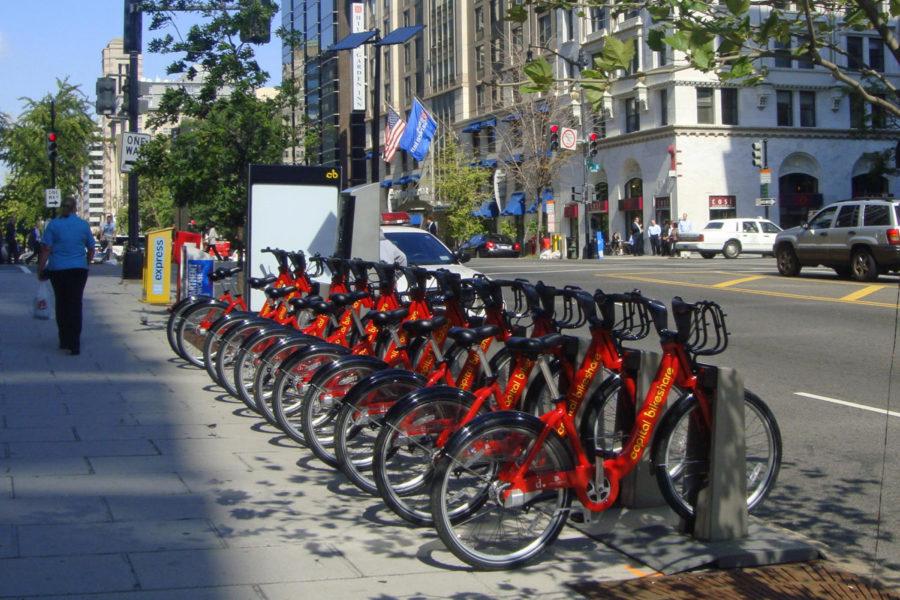Editorial: Implementing bike share is a logical solution
Many cities have functioning bike share programs to help people get around the cities faster, save money and reduce pollution than driving a car. Now, bike share has potential to come to Iowa State and give students the option of getting to these places faster and with less pollution.
November 6, 2014
Imagine you slide your student ID at the bike rack, unlock a bike and pedal off to your next class. This is how easy it could be if Iowa State had a bike program. You could grab a bike for the amount of time you need it, ride it to your next class and lock it up at the next rack nearest to you.
Cities like New York, Chicago, Minneapolis and even Des Moines have functioning bike share programs to help people get around the cities faster than they would by walking and with less money and pollution than driving a car. Now, bike share has potential to come to Iowa State University and give students the option of getting to these places faster and with less pollution.
The Government of the Student Body recently passed a bill saying that they would continue to have conversations discussing bike share and what the pros and cons would be for Iowa State to implement such a program. Some of the concerns coming from students is that traffic among campus is already congested and adding bikes will not make it any less packed; it will just be packed with students on wheels.
In all reality, the bike share program will not be implemented anytime soon, even if the bike share program hypothetically could be passed starting tomorrow. Prototypes of bicycles are being built by students in industrial design. These are only prototypes and no finished product has been determined to be final for the project yet. There will still need to be bike racks built and alternate forms of transportation, including traffic like cars and busses will have to be decided.
It could take years and we could be graduates from Iowa State before our school sees a fully functioning bike share program.
That being said, a bike share program is one that could help with the traffic at Iowa State. The cost of a CyRide bus is approximately $1 million to purchase one and they only get roughly 6 miles to the gallon on gas. With a new grant program being implemented called TIGER, CyRide will be able to receive 12 CyRide busses for $6 million, according the the CyRide website.
That seems like a lot of money for a few busses. 6,619,182 students rode CyRide in the 2014 fiscal year, but if more students were riding bikes instead of busses we could be saving a lot of money on how much CyRide has to spend, which in turn correlates with how much Iowa State University spends on the busses and how much tuition will be increased to pay for that. Having a bike share program could reduce the costs of CyRide.
Bike share helps incorporate a clean environment. A little bit of sweat in the air is not going to cause any pollution, but the exhaust from busses and cars certainly can. In urban areas, anywhere from 50 to 90 percent of air pollution is caused by vehicles. Now, Iowa State’s campus is not considered an urban area, but with the number of driving students and the number of busses, students surely account for air pollution in the Ames area.
A bike share program is one that can help reduce college costs as well as help clean up the environment. Bigger cities have the right idea in new and innovative forms of transportation. It would be silly for Iowa State not to pedal forward with bike share, because with every step we don’t take to move forward, we are falling further behind.







